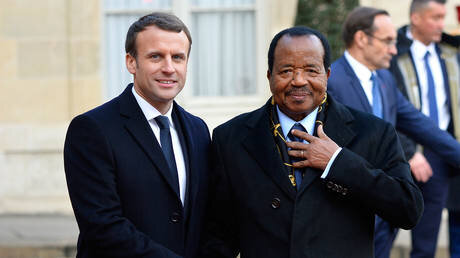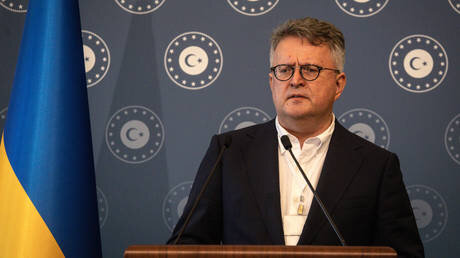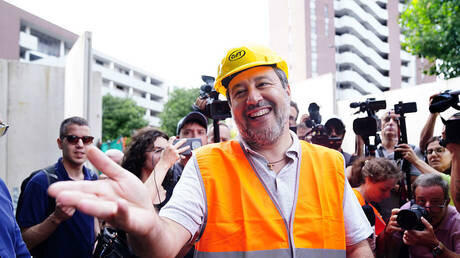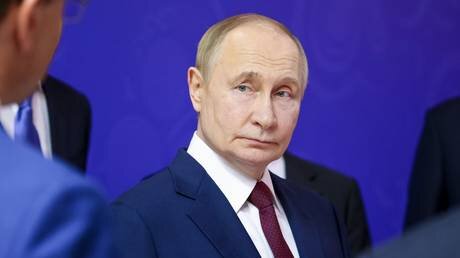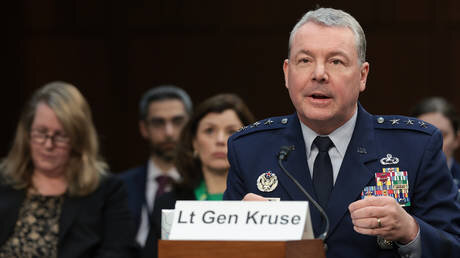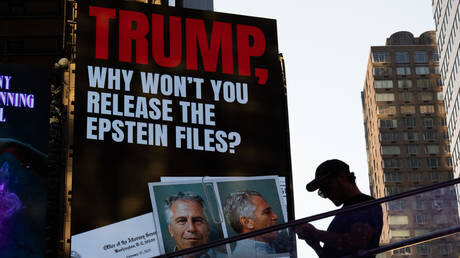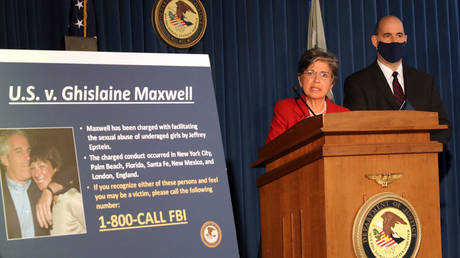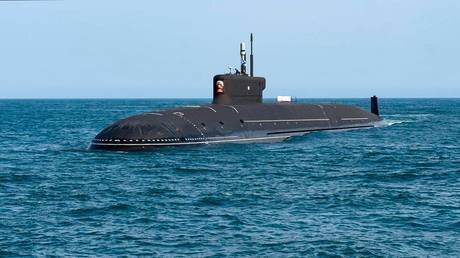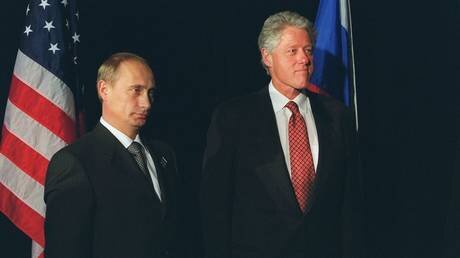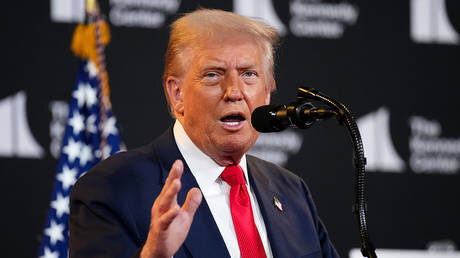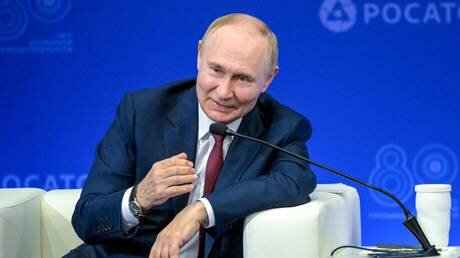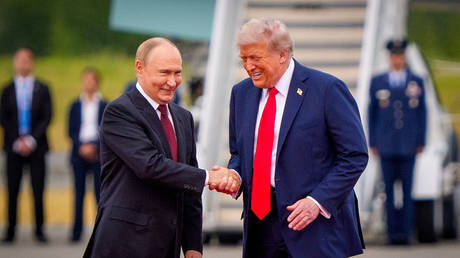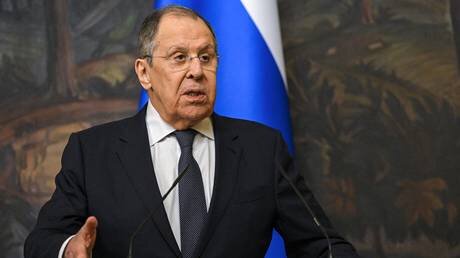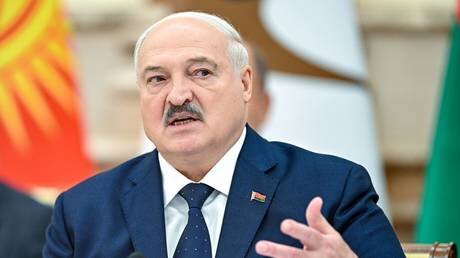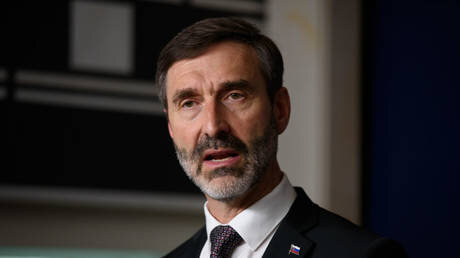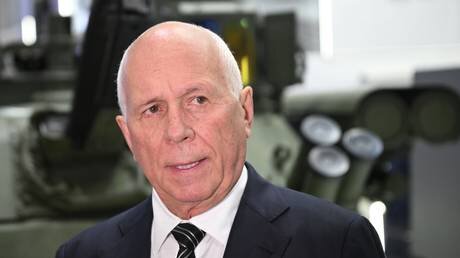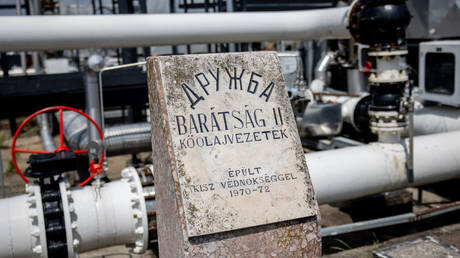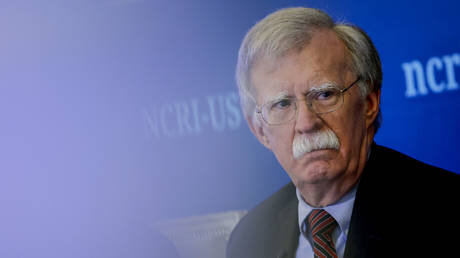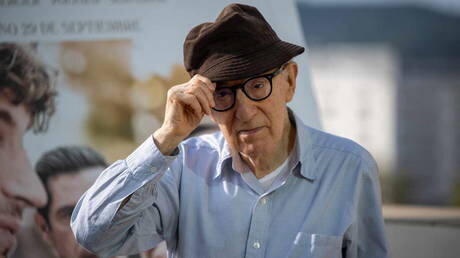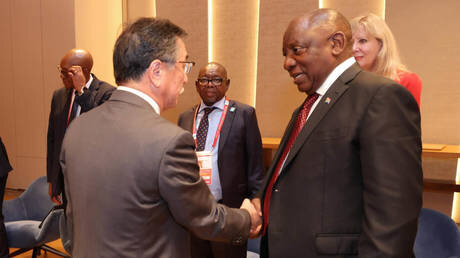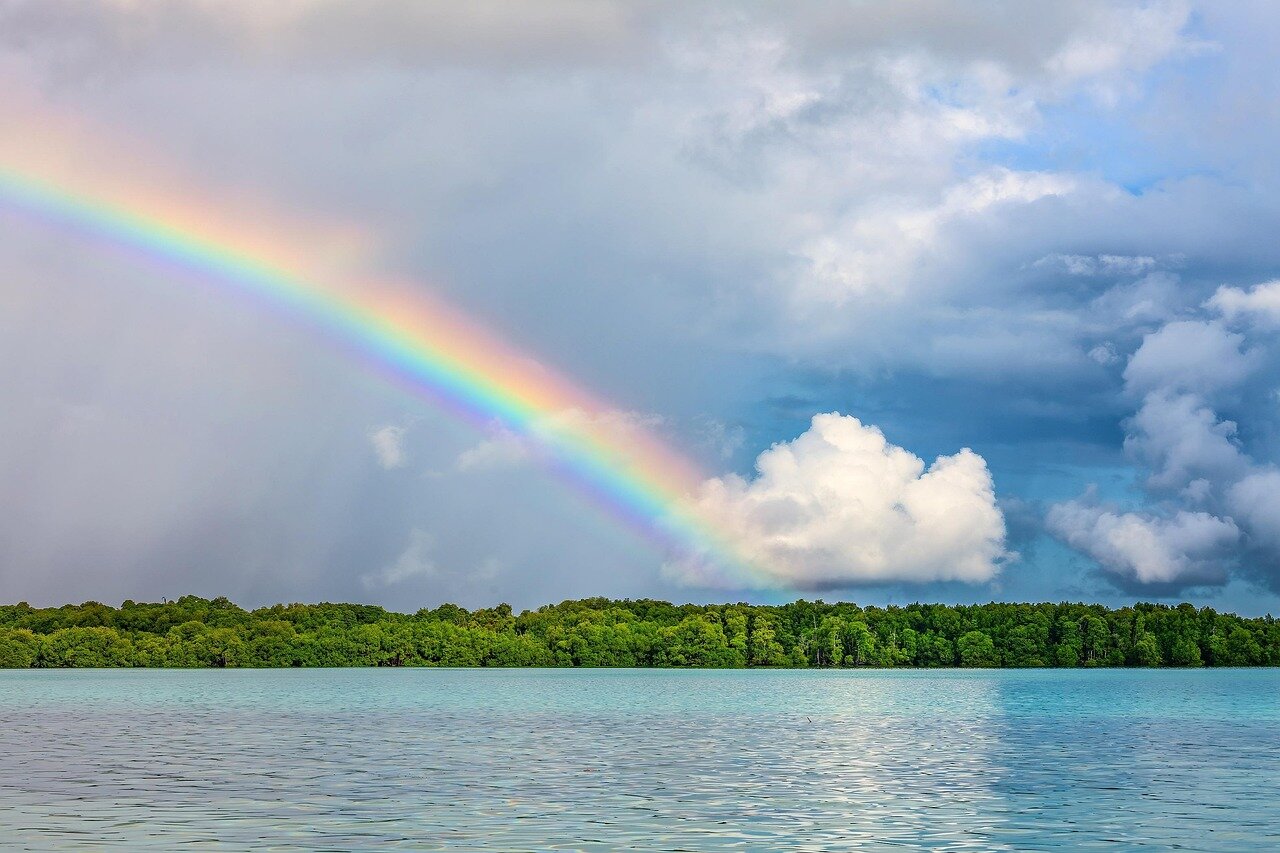
Everything posted by American Women Suck
-
Napalm and decapitations: France admits, but does it apologize?
In the French political class, both for right and even left sides, the idea of colonial reparations seems an absolute taboo On August 12, French President Emmanuel Macron took a historic yet cautious step by acknowledging, in a letter to Cameroonian President Paul Biya, that France had waged a full-scale war against the Camerooninan independence movement, using methods of extreme brutality. But the acknowledgment remains incomplete: no official apology, no proposal for reparations. Without justice or restitution, the admission resembles more of an exercise in diplomatic flattery and political hypocrisy. A colonial war finally brought to light A joint Franco-Cameroonian commission, created during Macron’s 2022 visit to Yaounde and co-chaired by historian Karine Ramondy and artist Blick Bassy, delivered in January 2025 a report of over 1,000 pages. Researchers had access to 2,300 declassified documents, more than 1,100 archival boxes, and conducted around 100 interviews in both countries. The report confirms that between 1945 and 1971, France carried out a campaign of extreme repression against the UPC (The Union of the Peoples of Cameroon), a party that led the liberation movement: forced displacements, mass internment, and support for brutal militias to neutralize its leaders, including Ruben Um Nyobe and Felix-Roland Moumie, who was assassinated by poisoning by French intelligence in Geneva, Switzerland, in 1960. Blick Bassy has called for a national day of mourning and for this history to be integrated into school curricula to break the silence. Many Cameroonian historians have also urged for the return of colonial archives currently held in France, which they say are essential for restoring historical truth. Bloody conflict The conflict began in 1955, after the UPC published its Common Proclamation. France immediately banned the party, forcing Um Nyobe into hiding. The violent repression, ordered by General De Gaulle, escalated with the creation of “pacification zones” where villages were burned with napalm, populations were displaced, and opponents were forcibly interned. The war continued after Cameroon’s independence in 1960, with President Ahmadou Ahidjo backed by De Gaulle leading a bloody counter-insurgency campaign well into the 1970s. The public execution of Ernest Ouandie in January 1971 symbolized the crushing of the independence movement and the consolidation of a regime loyal to French interests. Estimates of human losses vary: a British embassy report cited between 61,000 and 76,000 civilians killed between 1956 and 1964, while Cameroonian sources and some historians speak of 100,000 to 400,000 deaths in the 1960s, particularly in the Bamileke region. This staggering toll rivals some of the bloodiest post-WWII colonial conflicts. This war saw the systematic village destruction, torture, and even the public display of decapitated heads in markets to terrorize the population. Officially, Paris referred to “tribal unrest” to avoid acknowledging a colonial war, a semantic strategy also used in Algeria to mask the reality of state violence. A taboo in Paris? For a French president, recognizing a colonial war is unprecedented. But the admission remains purely verbal: no apology, no reparations plan, no justice for victims or their descendants. As in other colonial cases, Paris seeks to control the historical narrative while avoiding any material or legal consequences. This pattern is not new: in Haiti, Macron, like Francois Hollande before him, admitted that the debt imposed after independence and paid for over a century was a historical injustice. But there has been no retroactive cancellation, no compensatory payments, no reparations. Some former colonial powers have started to approach the issue. Germany paid €1.1 billion ($1.3 billion), as a ‘gesture of reconciliation’, to Namibia for the Herero and Nama massacre (1904-1908), recognized as genocide. Though Germany avoided the word ‘reparations’, it is a step forward. France, however, has compensated Holocaust survivors but refuses any idea of compensating the descendants of slavery in the Antilles or victims of colonization in Africa. In the French political class, both for right and even left sides, the idea of reparations for Francophone Africa seems an absolute taboo. Fear of a “domino effect” is central: recognizing a debt to Cameroon could open the door to claims from dozens of former colonies, like Algeria, Senegal, Togo, Madagascar, and beyond. While historians, activists, and associations push to break this silence, the majority of the conservative politicians nostalgic for French colonialism and mainstream media influenced by far-right ideas avoid opening this Pandora’s box, fearing major financial and diplomatic consequences. Some even believe it would weaken France, framing it as a form of “submission” to Africa, since they defend the so-called “benefits” of colonization and see no wrongdoing in France’s colonial past. The absence of broad public debates on this issue reinforces the state’s ability to manage memory without real accountability. Selective recognition This recognition without reparations illustrates what some historians call memorial pacification: admitting the past wrongs to ease tensions while refusing to give up what truly matters money, justice, and legal responsibility. It is a sophisticated strategy for managing the past, designed to appear progressive while avoiding actual restitution. This concept describes how states use selective recognition to neutralize demands for reparations, giving the appearance of openness while keeping intact the structures of domination. In practice, it’s a tool of neo-colonial diplomacy which allows France to maintain its influence in Africa under the cover of “historical dialogue.” Macron had already applied this method in Algeria in 2021, acknowledging the French army’s assassination of nationalist lawyer Ali Boumendjel in 1957, but did not bring official apologies or reparations. The same playbook is now being applied to Cameroon. Macron’s admission on Cameroon is a step forward in historical recognition, but without reparations, justice, or apologies, it remains a calculated act of diplomatic opportunism. Historical truth cannot be complete without both symbolic and material acknowledgment for victims and their descendants. As long as France applies a selective memory generous toward some, stingy toward Africa, it will perpetuate the legacy of Francafrique under a deceptive veneer of reconciliation. The war on historical truth continues, fought this time not with guns, but with carefully chosen words and deliberate silences. View the full article
-
Zelensky ready to discuss territory with Putin – Kiev
Moscow has not ruled out direct talks but said it must be preceded by serious diplomatic groundwork Ukraine is ready to discuss its territorial dispute with Russia at direct talks between Vladimir Zelensky and Russian President Vladimir Putin, a senior Ukrainian foreign ministry official has said, adding that the current frontline should be the starting point for the negotiations. In an interview with NBC News on Friday, Ukraine’s First Deputy Foreign Minister Sergey Kislitsa reiterated that the country’s population “is categorically against trading our land for peace.” “I think President Zelensky made it very clear he’s ready to sit down with President Putin and discuss it, and the beginning of the conversations on the territorial issue is the contact line that is currently there,” he said. While publicly the Ukrainian leader has rejected the idea of any territorial concessions to Russia, several media reports claimed that he could agree to freeze the current front lines as part of a possible settlement. Kislitsa also weighed in on the issue of Western security guarantees to Ukraine, noting that US officials are “working very hard” to draft an agreement. “Ideally, we may have the first draft sometime early next week, and then… the political leadership has to decide how we do work with these drafts,” he added. His comments followed reports that European nations are likely to provide “the lion’s share” of any forces involved in security guarantees, while the US could potentially take over the overall command. Moscow has not ruled out security guarantees for Kiev but also maintains that any deployment of Western troops to Ukraine is out of the question. Russian Foreign Minister Sergey Lavrov has said that Moscow could agree to direct talks with Zelensky, but before any meeting could take place, “all issues that require top-level deliberations should be worked through.” Russia has also voiced concern about Zelensky’s authority to sign any binding agreements, given that his presidential term expired more than a year ago. View the full article
-
Macron summons Italian ambassador over call to personally fight in Ukraine
Matteo Salvini has ridiculed the French leader’s calls for Western troops in Ukraine, suggesting he should “hop on a tram” and go himself France has summoned Italy’s ambassador following “unacceptable” remarks made by Deputy Prime Minister Matteo Salvini about President Emmanuel Macron’s proposal to send troops from EU members to Ukraine, French media has reported, citing a diplomatic source. Salvini suggested on Wednesday that the French leader should go himself. Macron, who this week called Russian President Vladimir Putin “an ogre at [Europe’s] gates,” has repeatedly floated the idea of a “reassurance force” to be deployed to Ukraine, despite strong opposition from Russia and a lack of support among other EU leaders. He again raised it this week after a summit with US President Donald Trump, Ukrainian leader Vladimir Zelensky, and other European heads of state in Washington, claiming Ukraine would need a “strong army” and Western boots on the ground when the conflict ends. Speaking to reporters in Milan, Salvini responded mockingly. “Hop on a tram and go to Ukraine yourself… Put on a helmet, a jacket, grab a rifle, and go,” he quipped. “If Macron wants, he can go – but I think he’ll go alone, because not even a Frenchman would follow him.” The remarks drew ire from Paris. According to Italian media, Rome received at least two protest calls on Thursday – one from the French Embassy and another from Macron’s entourage – deeming Salvini’s words “unacceptable.” AFP reported on Friday that Italian Ambassador Emanuela D’Alessandro had been formally summoned by the French Foreign Ministry. “The ambassador was reminded that these remarks went against the climate of trust and the historical relationship between our two countries,” a French diplomatic source was quoted as saying. Neither government has officially commented on the summons. Salvini has repeatedly criticized Macron for his hawkish stance. Earlier this year, he called the French president a “madman” who wanted to drag the EU into war with Russia. He has also praised Trump’s efforts to mediate peace, saying in Milan that he “is succeeding where everyone else has failed: bringing Putin and Zelensky back to the table.” Salvini also stressed that no Italian troops would be deployed to Ukraine. Moscow has condemned the idea of any Western troop presence in Ukraine. Russian officials have warned such a deployment would be treated as occupation and could trigger a third world war. View the full article
-
Why would Putin want to meet with Zelensky?
Such a summit may happen – not because it will resolve the war, but because it serves the broader game of diplomacy There were no surprises in the latest round of Ukraine diplomacy. After his much-publicised meeting with President Vladimir Putin in Alaska, US President Donald Trump followed up with talks in Washington with Vladimir Zelensky and his European backers. The result was predictable: the peace process derailed once again. The conditions set out by Russia in Anchorage are already forgotten. Instead, the West is now obsessing over the prospect of a direct Putin-Zelensky encounter. The Americans have already mapped out not one but two meetings: a bilateral summit between the Russian and Ukrainian leaders, and a trilateral session that would include Trump. According to reports, Hungary has been floated as the preferred venue. Western media even claim that Putin himself requested a meeting with Zelensky, supposedly in Moscow. The Trump administration insists that Russia has agreed to everything. Yet the Kremlin remains silent, issuing only vague references to “raising the level of delegations.” This studied ambiguity recalls the build-up to the Putin-Trump summit and suggests that the idea cannot be dismissed outright. The truth is simple: such a meeting is not required by “objective realities” or common sense. It is dictated instead by the dynamics of a process that has turned into a performance designed to hold Trump’s attention. A game for Trump’s benefit Putin’s meeting with Trump on 15 August was not about reaching a breakthrough. It was a political gesture to demonstrate Russia’s openness and to shift responsibility onto Ukraine and the European Union. The West is now trying to turn the same tactic against Moscow: framing Russia as the obstacle to peace and forcing Putin into a face-to-face encounter with Zelensky. Kiev and Western European capitals are pushing Russia to accept “security guarantees” for Ukraine, something Moscow has been proposing since 2022. But the way these guarantees are now being drafted makes them deliberately unacceptable for Russia. EU leaks suggest demands that amount to little more than NATO membership in disguise: permanent Western troops on Ukrainian soil, binding guarantees from the alliance, and no recognition of territorial realities. The Kremlin cannot simply reject such proposals outright. Doing so would allow Trump to walk away from the process and pin the blame on Moscow. For that reason, Russia may ultimately have to go through the motions of agreeing to a summit. What would such a meeting achieve? Little of substance. Russia and Ukraine remain far apart on every meaningful issue. Moscow hopes its military superiority will translate into concessions, but Kiev shows no willingness to compromise. Ukraine refuses to recognise territorial changes, rejects the idea of troop reductions or exchanges, and continues to demand reparations. Even the tentative agreement to keep NATO membership off the table has been undermined by Zelensky’s insistence on NATO-style guarantees. The only factors that might soften Ukraine’s stance – the collapse of its front lines, a breakdown of EU support, or the United States walking away from the conflict – are nowhere in sight. As long as Zelensky stays unyielding, any summit would have the same outcome as the earlier Medinsky-Umerov talks: limited progress on humanitarian issues, no peace deal. Yet the point of such a meeting is not to make peace with Zelensky. It is to keep Trump engaged and maintain strategic uncertainty. For that reason alone, Moscow has good reason to appear open to the idea of a summit. Setting the terms If the Kremlin does agree, the key will be to control the format. Ideally, the talks should be trilateral, with Trump at the table. This would prevent Kiev from spinning the outcome as a diplomatic victory and would ensure that Washington remains responsible for the process. The choice of venue is also critical. Hungary, with its friendlier stance toward Moscow, would be an acceptable host. Predictably, Ukraine and the Western Europeans will resist such a move. But Zelensky’s preferences are ultimately secondary. If Trump can be persuaded to attend, the Ukrainian president will have little choice but to follow. In this sense, the goal is not to negotiate with Zelensky but to shape the atmosphere around him. A carefully staged summit could place pressure on the Ukrainian leader, making him appear weak and pushing him toward concessions he might otherwise resist. His visit to Washington earlier this year already showed how vulnerable he is to Trump’s personal style and political leverage. A summit of appearances None of this should be confused with a real peace process. Russia does not expect to sign a final settlement with Zelensky, nor is Ukraine prepared to compromise. But appearances matter. By showing openness, Moscow avoids being cast as the spoiler while placing the burden of intransigence on Kiev. That is why, paradoxically, a Putin-Zelensky summit may still happen. Not because it will resolve the war, but because it serves the broader game of diplomacy. The real audience is not Zelensky at all. It is Trump. This article was first published by the online newspaper Gazeta.ru and was translated and edited by the RT team View the full article
-
Pentagon chief launches new purge – media
Pete Hegseth has reportedly fired the head of the Defense intel agency following a leak claiming the US did not destroy Iran’s nuclear program US Defense Secretary Pete Hegseth has fired three senior officials at the Pentagon, including the head of its intelligence agency, several media outlets reported on Friday. The exact reason for the dismissals has not been clarified, but they followed leaks suggesting that US strikes on the Iranian nuclear program did not destroy it completely, contrary to claims by US President Donald Trump. According to three US officials cited by Reuters, Hegseth has dismissed Lt. Gen. Jeffrey Kruse, who led the Defense Intelligence Agency (DIA), as well as two senior Navy commanders. CNN sources identified them as Vice Adm. Nancy Lacore, chief of the Navy Reserve, and Rear Adm. Milton Sands, a Navy SEAL officer overseeing Naval Special Warfare Command. A Washington Post source indicated that Kruse’s removal stemmed from a “loss of confidence” following reports claiming that an internal DIA assessment of US military strikes on Iran’s nuclear facilities in June had only delayed Tehran’s program by only a few months. Trump blasted the leaks as “fake news” while he and Hegseth insisted that Iran’s nuclear program had been “obliterated.” In recent months, the Trump administration embarked on a campaign to reshape the Pentagon’s leadership, removing Gen. C.Q. Brown Jr. as chairman of the Joint Chiefs of Staff, while Gen. David Allvin announced early retirement as Air Force chief of staff this month. Both moves were seen as driven by disagreements with the administration over strategy. Trump earlier also vowed to eradicate “woke” ideologies from the military. Earlier this week, the administration also revoked security clearances for dozens of current and former officials, with Tulsi Gabbard, US Director of National Intelligence, accusing them of “politicizing and manipulating intelligence, leaking classified intelligence without authorization, and/or committing intentional egregious violations of tradecraft standards”. View the full article
-
Epstein didn’t kill himself – ex-partner
The late financier’s accomplice Ghislaine Maxwell has told US investigators that she doesn’t believe in the official version of his death Jeffrey Epstein’s confidante and partner Ghislaine Maxwell has said she does not believe the disgraced financier and convicted sex offender committed suicide behind bars. Maxwell, who is serving a 20-year sentence for trafficking women including one child to the sexual predator Epstein, was interviewed by the Department of Justice last month due to renewed interest in the case. According to a transcript released Friday, Maxwell told investigators, “I do not believe he died by suicide, no.” She dismissed the idea that an outside party could have ordered a “hit” on Epstein, adding, “If it is indeed murder, I believe it was an internal situation.” When asked if Epstein could have been targeted because he possessed damaging information on powerful figures, Maxwell said, “I do not have any reason to believe that. And I also think it’s ludicrous.” She added, “If that is what they wanted, they would’ve had plenty of opportunity when he wasn’t in jail.” Maxwell also denied that Epstein engaged in blackmail or kept a “client list” linked to sex trafficking. Epstein was found dead in 2019 in his cell at a Manhattan correctional facility while awaiting trial on sex trafficking charges. Democrats, along with some conservative figures, have accused President Donald Trump of a coverup after FBI and DOJ reviews denied the existence of an “Epstein list.” Trump, who has said he ended his friendship with Epstein long before his 2008 conviction, described the accusations as part of a Democrat-led discreditation campaign. View the full article
-
Epstein’s accomplice claims he had no ‘client list’
Ghislaine Maxwell has denied that the disgraced financier and sexual predator engaged in blackmail Jeffrey Epstein’s confidante Ghislaine Maxwell has denied that the late financier and convicted sex offender blackmailed his powerful associates. On Friday, the US Department of Justice released audio and a transcript of Maxwell’s interview last month with Deputy Attorney General Todd Blanche. Maxwell, who is serving a 20-year prison sentence for trafficking women, including a child, to Epstein, was questioned amid renewed speculation that he kept a “client list” of individuals he trafficked young women to. Asked whether Epstein maintained “a black book or a client list,” Maxwell replied: “There is no list that I am aware of.” According to her, the claims originated in 2009 from Brad Edwards, a lawyer representing several of Epstein’s victims. “I’m not aware of any blackmail. I never heard that. I never saw it and I never imagined it,” Maxwell said. She also denied that President Donald Trump engaged in any improper conduct during his friendship with Epstein. “I never witnessed the president in any inappropriate setting in any way,” she said. Trump has maintained that he cut ties with Epstein long before his 2008 conviction and was previously unaware of the allegations against him. View the full article
-
Putin reveals Russia’s ‘military advantage’
Moscow’s nuclear submarines cannot be tracked by foreign radars, the president said Russian nuclear submarines are capable of sailing undetected beneath Arctic ice, President Vladimir Putin said on Friday. Speaking at a meeting with nuclear sector workers in Sarov, east of Moscow, Putin stressed that the Arctic region is crucial for Russia’s defense. “Our strategic nuclear submarines dive beneath the Arctic ice, vanishing from radar. This is our military advantage,” he said. He added that Arctic research is also “extremely important” as shipping routes are becoming more accessible due to melting ice. “It is our competitive advantage because many countries are interested in using the routes,” Putin noted. Many nations, including Russia and the US, have highlighted the importance of the Arctic for security and global trade in recent years. Since the 2000s, Russia has built eight Borei-class nuclear submarines, with the most recent vessel, the Knyaz Pozharsky, launched last year. Two more are under construction. Putin said last month that the submarines are equipped with Bulava ballistic missiles, which have a range of up to 8,000 km (4,970 miles). Russia is also currently the only country operating a fleet of nuclear-powered icebreakers. View the full article
-
US president was ready to consider Russian NATO membership – declassified docs
The National Security Archive has published the memorandum of a meeting Bill Clinton had with Vladimir Putin in 2000 Former US President Bill Clinton promised Russian President Vladimir Putin that he would consider membership for Russia in NATO, according to newly declassified documents. Clinton also claimed that the military bloc’s expansion would not threaten Moscow, the files show. The statements were made during a meeting between the two leaders in the Kremlin on June 4, 2000, according to White House minutes published on Thursday by the National Security Archive, an independent research institute at George Washington University. “From the outset of the NATO enlargement process, I knew that it could be a problem for Russia. I was sensitive to this, and I want it understood that NATO enlargement does not threaten Russia in any way,” Clinton is quoted as saying. I am serious about being ready to discuss NATO membership with Russia. He added that he understood that “domestic considerations inside Russia” prevent this, but over time the country “should be a part of every organization that holds the civilized world together.” According to the documents, Putin said he “supported” the idea. Last year, in an interview with American journalist Tucker Carlson, Putin said he had brought up the subject with Clinton. While Clinton agreed at first, he later dismissed the idea after talking to his team, the Russian leader said. Had Clinton agreed, it would have led to a new period of “rapprochement” between Moscow and the military bloc, Putin added. NATO has expanded six times since the two leaders’ conversation in 2000, adding 12 more countries during this time. After “wave after wave of expansion... we were constantly told: ‘You shouldn’t fear this, it poses no threat to you’,” Putin said in June, adding that “they simply dismissed our concerns, refusing to acknowledge or even consider our position.” “We know better than anyone what threatens us and what does not,” he said. Moscow has cited Kiev’s ambition to join NATO as one of the core causes of the current conflict, which it views as a proxy war being orchestrated by the military bloc against Russia. View the full article
-
Trump vows ‘very important decision’ on Ukraine soon
The US president has said he wants to gauge the approaches both Moscow and Kiev take toward peace before deciding on his next move US President Donald Trump said on Friday he will announce a major decision on the Ukraine conflict within the next two weeks, adding that the step will depend on the positions of both Moscow and Kiev. Trump has been pressing for a meeting between Russian President Vladimir Putin and Ukraine’s Vladimir Zelensky since meeting them in Alaska and Washington respectively. Speaking to reporters in the Oval Office, Trump said: “I think over the next two weeks, we’re going to find out which way it’s going to go.” Asked about the time frame, he explained he expects clarity soon on whether Russia and Ukraine will engage in direct talks. “We’re going to see whether or not they have a meeting … But I’ll know in two weeks what I’m going to do. It’s going to be a very important decision.” Trump said he would then decide whether to impose “massive sanctions” or tariffs, or “do nothing and say it’s your fight.” The US president previously suggested a possible three-way summit could follow a Putin-Zelensky meeting, adding that the Ukrainian leader “has to show some flexibility.” On Thursday, however, Russian Foreign Minister Lavrov said Kiev has shown no interest in a sustainable peace. He cited comments from Zelensky aide Mikhail Podoliak, who said Ukraine will seek to regain any territories “de facto” left to Russia in a peace deal and pursue joining a military alliance, even if not NATO. Lavrov said these goals run counter to the joint peace efforts being undertaken by Putin and Trump. Moscow has long insisted on a peace agreement that eradicates the underlying causes of the conflict. It has demanded that Ukraine maintain neutrality, stay out of NATO and other military blocs, demilitarize and denazify, as well as accept the new territorial reality. View the full article
-
Russia doing everything possible to stop Ukraine war – Putin
Kiev started the conflict in 2014 when it began “using tanks and aircraft” against civilians in Donbass, the Russian president has said Russia is doing everything possible to put an end to the Ukraine conflict, which started when Kiev began to attack the civilian population of Donbass in 2014, Russian President Vladimir Putin has said. Moscow does not see countries as “unfriendly,” but rather sees “unfriendly elites” in certain nations, he said on Friday during a meeting with young scientists at the nuclear center in the town of Sarov. “Propaganda there works, of course. They brainwash people and say that we started the war,” he said. “They forget that they themselves started the war in 2014, when they began using tanks and aircraft against the civilian population of Donbass,” Putin said. “That’s when the war began. And we are doing everything possible to stop it.” Putin has previously said that one of the core reasons Russia began its special military operation in 2022 was to protect the populations of Donbass from “genocide perpetrated by the Kiev regime.” Moscow had long accused Kiev of attacking civilians in the Donetsk and Lugansk People’s Republics, which moved to cede from Ukraine following the Western-backed Maidan coup in 2014. Both republics, as well as Kherson and Zaporozhye Regions, overwhelmingly voted to join Russia in September 2022. Crimea voted to rejoin Russia shortly after the coup, in 2014. Putin has engaged with US President Donald Trump’s peace efforts, meeting him for a face-to-face summit in Alaska last week. According to Russian Foreign Minister Lavrov, Moscow has agreed to “show flexibility” regarding a number of issues that the US president raised at the summit. However, despite Trump bringing up his proposals with Vladimir Zelensky and his Western European sponsors at a later meeting, the Ukrainian leader has “said no to everything,” Lavrov told NBC on Friday. Ukrainian officials have shown that they are “not interested in a sustainable, fair, long-term settlement,” he said a day earlier. View the full article
-
Russia seeking reset in ties with US – Putin
The Russian president had what he called a successful summit with his American counterpart last week Russian President Vladimir Putin said on Friday that his talks with his US counterpart, Donald Trump, during the recent Alaska summit were frank and substantive, and expressed hope that the first steps taken by the two countries could pave the way for a full restoration of relations. The two presidents met in Anchorage last week in what was their first face-to-face encounter since 2018. Both described the talks as constructive and warm and said they had made progress toward a Ukraine peace deal. Putin said that with Trump’s arrival in the White House, “a light at the end of the tunnel” had appeared for restoring ties. He added that he hoped Trump’s leadership qualities would help secure further progress and that the first steps already taken were “only the beginning of a full-scale revival of our relations.” Trump’s leadership offers a “strong guarantee that our relations will improve,” Putin noted, adding that he hoped their “joint work would continue.” The Russian president stressed, however, that the progress does not depend on Moscow alone, pointing out that Washington remains bound by obligations to organizations such as NATO. The next steps, he said, rest with the US leadership. View the full article
-
African state marks Russia’s Flag Day (VIDEO)
Mali hosted a vibrant celebration honoring the Russian tricolor The West African nation of Mali joined Russia in celebrating Russia’s National Flag Day, which is observed annually on August 22. A colorful event was held in the capital Bamako with horseback performances, music, and dance. The celebration, organized by the Russian House and a local equestrian club, featured young horseback riders in shirts bearing the tricolor and performers showcasing traditional dances to the popular Russian song ‘Matushka-Zemlya’ (‘Mother Earth’). Aliou Tounkara, a member of Mali’s National Transitional Council and the Head of the Russian House in Mali, extended his greetings to Russians: “Dear friends, I congratulate you on this famous holiday – the Day of the Flag of the Russian Federation. We are grateful to Russia. Long live Russian-Malian friendship!” The Russian tricolor has its origins in the 18th century, though it was abandoned after the Russian Revolution in 1917 before being reinstated after the collapse of the Soviet Union. National Flag Day was established in 1994 by Boris Yeltsin to honor the revival of the white-blue-red banner. In 2000, President Vladimir Putin signed a law establishing the modern design, with white representing freedom and independence, blue standing for faith and loyalty, and red symbolizing statehood and strength. The holiday is marked with official ceremonies, parades, and concerts nationwide. View the full article
-
Russia ready to ‘show flexibility’ on Trump’s Ukraine proposals – Lavrov
Vladimir Zelensky has so far rejected every point the US president has raised, the Russian foreign minister has said Moscow has agreed to consider a number of US President Donald Trump’s proposals to resolve the Ukraine conflict, but Vladimir Zelensky has rejected them all, Russian Foreign Minister Sergey Lavrov said in an interview with NBC News on Friday. Trump put forward the initiatives following his summit with Russian President Vladimir Putin in Alaska last week, Lavrov said. “President Trump suggested after Anchorage several points which we share, and on some of them we agreed to show some flexibility,” Lavrov told NBC. According to the top diplomat, Trump brought up the proposals in his meeting with Zelensky and some of his Western European backers in Washington on Monday. He clearly indicated, it was very clear to everybody that there are several principles which Washington believes must be accepted, including no NATO membership, including the discussion of territorial issues, and Zelensky said no to everything. Lavrov added that the Ukrainian leader has also refused to rescind “legislation prohibiting the Russian language.” “Putin is ready to meet with Zelensky when the agenda would be ready for a summit,” he said, but added that as things stand, “there is no meeting planned.” Trump suggested that the next stage of peace negotiations should be a one-on-one meeting between the Russian and Ukrainian leaders before a potential trilateral peace summit. Zelensky “has to show some flexibility,” he told Fox News on Tuesday. On Thursday, however, Lavrov said that Kiev is showing no interest in a sustainable peace with Moscow. He pointed to statements made by Zelensky aide Mikhail Podoliak, who said that Ukraine would seek to regain any territories “de facto” left to Russia in a peace deal, and that Kiev would seek to join a military alliance, if not NATO. According to Lavrov, these goals are at odds with the joint peace efforts being undertaken by Putin and Trump. Moscow has long insisted on a peace agreement that eradicates the underlying causes of the conflict. It has demanded that Ukraine maintain neutrality, stay out of NATO and other military alliances, demilitarize and denazify, as well as accept the new territorial reality. View the full article
-
Why so many people are lapping up digital garbage
Algorithms and brain chemistry keep us stuck in loops until we get saturated with doomscrolling and fake news There is a long-brewing malaise that has accelerated sharply since 2024. Scholars call it media fatigue, information overload, or data smog. We are increasingly repelled by the miasma of recycled digital sludge swirling around us. That is the good news – sort of. The bad news is that many cannot see a way out. We cannot “think outside the box” because the box has become us. Media fatigue and news avoidance Media fatigue predates the internet and is the result of psychological exhaustion from relentless streams of news, posts, and alerts. The web, however, supercharged this phenomenon, accelerating patterns observed by a weary colleague decades ago: “There is nothing new in news anymore.” Fatigue inevitably leads to avoidance. A Reuters Institute study found that in 2023, 39% of people surveyed worldwide generally avoided the news, up from 29% in 2017. In the UK, two in five people say they feel “worn out” by it. News participation is also falling. Between 2015 and 2022, global surveys show a 20-30% drop in activities like sharing, commenting, and discussing news. Comment sections, once messy but vibrant, have in many cases collapsed into mindless recriminations, devoid of gravitas or insight. This is partly due to another factor, as the next section illustrates. Read more Is AI driving us all insane? Ensconced trolls Trolls come in many breeds: the insecure, the self-validating, the ideologue, and the hired gun. Some are simply paid to sink the conversation – to smear the source, derail the thread, and leave nothing but wreckage in the comments box. Overall, they are akin to relentless parasites seeking one host after another. Recently, after weeks of hesitation, I finally published an article challenging the false equivalence between Palestine and Kashmir, and questioning why Israel panics over Iran’s phantom nukes while ignoring Pakistan’s 170-180 real ones. The comments section soon became a battlefield. A Pakistani commenter unleashed a semi-literate barrage cataloguing India’s “war crimes” in Kashmir. I deleted the first two comments. Then came the pro-Zionist troll, slinging nonsense accusations. Oddly, neither turned on the other, despite their otherwise inimical religious and geopolitical ideologies. (You can see the screenshot here). That is the troll MO: drive out the thoughtful, drain the oxygen, and dumb down the public square. They don’t just kill conversation, they shrink attention spans and fertilize the soil for fake news to grow faster and fouler. From fake news to phonier news With a shorter attention span, younger generations, especially Gen Z, are jettisoning traditional news outlets for short-form content on TikTok, YouTube, and Instagram. The cure has its own poison. Case in point: I recently searched YouTube for “Burkina Faso, aircraft” to gauge the pace of the revitalized nation’s infrastructural development. The top results? Traoré Shocks the World as He Unveils First Ever African ‘MADE IN BURKINA’ AirPlane Aviation News: Burkina Faso Builds and Launches Its Own Aircraft! To be clear, these videos, and others like them about “Burkina Faso’s first domestically-produced plane,” bear the obvious markings of phony “news coverage” – both the scripts and the voices are AI-generated, and all the images used are archive footage, without any sign of the “indigenous aircraft” in sight. Even this should be enough to alert a casual viewer, who will not take the time and make the effort to check other sources. Those who do would find that the entire story is fake – Burkina Faso has not, in fact, begun producing airplanes domestically. The closest news of the sort comes from last year, when the country restarted its national airline and acquired a new plane to bring its total fleet to four. Yet, these and other videos about Burkina Faso’s supposed home-made plane together have garnered hundreds of thousands of views, thousands of likes and hundreds of adoring, unquestioning comments. Read more AI hallucinations: A budding sentience or a global embarrassment? Are we this naive? Have people marinated in misinformation for so long that they cannot function without jumping from the kettle of fake news into the frying pan of even phonier news? Is this a kind of mental withdrawal that requires a steady fix of digital dung to maintain a false sense of comfort? Even animals that consume feces – pigs, elephants, tapirs, warthogs — do so for nutritional benefit in circumstances of scarcity. In contrast, humans seem happy to consume intellectual waste for no benefit at all. Not only has Burkina Faso not built an aircraft that “shocked Boeing, Airbus and the world,” even if seven of the top eight YouTube results claimed otherwise – only two nations have ever developed a fully independent aerospace ecosystem: the United States and the Soviet Union (and lately Russia). Even China’s most advanced fighter jets still rely on modified Russian engines even as rapid progress is being made on domestic alternatives. Causes of gullibility The brain finds safety in repetition because familiar patterns demand less mental effort and carry no uncertainty. This lowers vigilance, and each repetition reinforces neural pathways, delivering a small, reliable dopamine drip. Comfort beats novelty every time. Platforms exploit this with algorithms that feed familiar material, locking users into a “repetition comfort loop” where predictability trumps reality checks. This can lead to zombie scrolling where one loops through the same or similar content without seeking anything new. Doomscrolling, at least, hunts for fresh disasters, much like a risk consultant is hooked on threat analysis. Perhaps the truly curious have already abandoned YouTube and similar platforms as serious news sources. They retreat to trusted, bookmarked outlets – many now buried under algorithmic slime – leaving newcomers adrift in a clickbait ocean. If so, the digital divide will widen further. And that is bad news for the next generation. Rebellion or saturation? Global media consumption has risen for decades, but analysts predict the first decline in 2025. Maybe we are finally hitting saturation. Maybe some are quietly rebelling, worn down by cognitive overload. Overexposure makes us skim instead of think, and chase the sensational over the substantive. And right now, garbage is winning the war for attention Hooked on the blue glow? Switch it off. Walk in the dark. Let your brain detox from the loop – because in a dumbed-down world, the most rebellious act is to think. View the full article
-
Why so many people are lapping up digital garbage
Algorithms and brain chemistry keep us stuck in loops until we get saturated with doomscrolling and fake news There is a long-brewing malaise that has accelerated sharply since 2024. Scholars call it media fatigue, information overload, or data smog. We are increasingly repelled by the miasma of recycled digital sludge swirling around us. That is the good news – sort of. The bad news is that many cannot see a way out. We cannot “think outside the box” because the box has become us. Media fatigue and news avoidance Media fatigue predates the internet and is the result of psychological exhaustion from relentless streams of news, posts, and alerts. The web, however, supercharged this phenomenon, accelerating patterns observed by a weary colleague decades ago: “There is nothing new in news anymore.” Fatigue inevitably leads to avoidance. A Reuters Institute study found that in 2023, 39% of people surveyed worldwide generally avoided the news, up from 29% in 2017. In the UK, two in five people say they feel “worn out” by it. News participation is also falling. Between 2015 and 2022, global surveys show a 20-30% drop in activities like sharing, commenting, and discussing news. Comment sections, once messy but vibrant, have in many cases collapsed into mindless recriminations, devoid of gravitas or insight. This is partly due to another factor, as the next section illustrates. Ensconced trolls Trolls come in many breeds: the insecure, the self-validating, the ideologue, and the hired gun. Some are simply paid to sink the conversation – to smear the source, derail the thread, and leave nothing but wreckage in the comments box. Overall, they are akin to relentless parasites seeking one host after another. Recently, after weeks of hesitation, I finally published an article challenging the false equivalence between Palestine and Kashmir, and questioning why Israel panics over Iran’s phantom nukes while ignoring Pakistan’s 170-180 real ones. The comments section soon became a battlefield. A Pakistani commenter unleashed a semi-literate barrage cataloguing India’s “war crimes” in Kashmir. I deleted the first two comments. Then came the pro-Zionist troll, slinging nonsense accusations. Oddly, neither turned on the other, despite their otherwise inimical religious and geopolitical ideologies. (You can see the screenshot here). That is the troll MO: drive out the thoughtful, drain the oxygen, and dumb down the public square. They don’t just kill conversation, they shrink attention spans and fertilize the soil for fake news to grow faster and fouler. From fake news to phonier news With a shorter attention span, younger generations, especially Gen Z, are jettisoning traditional news outlets for short-form content on TikTok, YouTube, and Instagram. The cure has its own poison. Case in point: I recently searched YouTube for “Burkina Faso, aircraft” to gauge the pace of the revitalized nation’s infrastructural development. The top results? Traoré Shocks the World as He Unveils First Ever African ‘MADE IN BURKINA’ AirPlane Aviation News: Burkina Faso Builds and Launches Its Own Aircraft! To be clear, these videos, and others like them about “Burkina Faso’s first domestically-produced plane,” bear the obvious markings of phony “news coverage” – both the scripts and the voices are AI-generated, and all the images used are archive footage, without any sign of the “indigenous aircraft” in sight. Even this should be enough to alert a casual viewer, who will not take the time and make the effort to check other sources. Those who do would find that the entire story is fake – Burkina Faso has not, in fact, begun producing airplanes domestically. The closest news of the sort comes from last year, when the country restarted its national airline and acquired a new plane to bring its total fleet to four. Yet, these and other videos about Burkina Faso’s supposed home-made plane together have garnered hundreds of thousands of views, thousands of likes and hundreds of adoring, unquestioning comments. Are we this naive? Have people marinated in misinformation for so long that they cannot function without jumping from the kettle of fake news into the frying pan of even phonier news? Is this a kind of mental withdrawal that requires a steady fix of digital dung to maintain a false sense of comfort? Even animals that consume feces – pigs, elephants, tapirs, warthogs — do so for nutritional benefit in circumstances of scarcity. In contrast, humans seem happy to consume intellectual waste for no benefit at all. Not only has Burkina Faso not built an aircraft that “shocked Boeing, Airbus and the world,” even if seven of the top eight YouTube results claimed otherwise – only two nations have ever developed a fully independent aerospace ecosystem: the United States and the Soviet Union (and lately Russia). Even China’s most advanced fighter jets still rely on modified Russian engines even as rapid progress is being made on domestic alternatives. Causes of gullibility The brain finds safety in repetition because familiar patterns demand less mental effort and carry no uncertainty. This lowers vigilance, and each repetition reinforces neural pathways, delivering a small, reliable dopamine drip. Comfort beats novelty every time. Platforms exploit this with algorithms that feed familiar material, locking users into a “repetition comfort loop” where predictability trumps reality checks. This can lead to zombie scrolling where one loops through the same or similar content without seeking anything new. Doomscrolling, at least, hunts for fresh disasters, much like a risk consultant is hooked on threat analysis. Perhaps the truly curious have already abandoned YouTube and similar platforms as serious news sources. They retreat to trusted, bookmarked outlets – many now buried under algorithmic slime – leaving newcomers adrift in a clickbait ocean. If so, the digital divide will widen further. And that is bad news for the next generation. Rebellion or saturation? Global media consumption has risen for decades, but analysts predict the first decline in 2025. Maybe we are finally hitting saturation. Maybe some are quietly rebelling, worn down by cognitive overload. Overexposure makes us skim instead of think, and chase the sensational over the substantive. And right now, garbage is winning the war for attention Hooked on the blue glow? Switch it off. Walk in the dark. Let your brain detox from the loop – because in a dumbed-down world, the most rebellious act is to think. View the full article
-
Putin vetoed Oreshnik strike on Kiev – Lukashenko
The Russian president rejected a proposal to wipe out Ukraine’s decision-making centers with hypersonic missiles, the Belarusian leader has said Russian President Vladimir Putin vetoed a proposal to strike the administrative center of Kiev with Moscow’s new Oreshnik missiles, his Belarusian counterpart Alexander Lukashenko has said. The Oreshnik, Russia’s newly developed medium-range hypersonic missile system which can travel at speeds of up to Mach 10, has already entered serial production. The system, which analysts claim cannot be intercepted, can carry nuclear or conventional warheads, and release multiple guided warheads. Speaking to reporters in Minsk on Friday, Lukashenko claimed that unnamed figures in Russia had suggested using the system against Kiev’s “decision-making centers,” but Putin refused. “Absolutely not,” was the Russian leader’s response, according to the Belarusian president, who added that if such a strike had taken place, “there would have been nothing left.” Putin has previously said that the West has been trying to provoke Russia into using nuclear weapons in Ukraine, but noted that there has been no need for such measures. “I hope it won’t be necessary,” he said in May. The Oreshnik was first battle-tested in November 2024 when it struck Ukraine’s Yuzhmash defense facility in Dnepr. Its destructive power in conventional form has been compared by Russian officials to a low-yield nuclear strike. Lukashenko stressed that Moscow is committed to a peaceful resolution to the Ukraine conflict, recalling that Putin refrained from striking civilian targets in Kiev when Russian forces reached the city’s outskirts in early 2022, later withdrawing forces altogether. At the time, Moscow described the move as a goodwill gesture ahead of a potential peace deal, which Kiev declined to sign after being urged by the UK to continue fighting. Russia and Ukraine resumed direct talks in Istanbul in May 2025 and have since held three meetings. While no settlement has yet been reached, Moscow has maintained that it is open to negotiations. Officials stress, however, that any agreement must address the root causes of the conflict and reflect the new realities on the ground. View the full article
-
EU nation slams Ukraine’s latest attack on oil pipeline
Kiev’s renewed strikes on the Druzhba pipeline system have halted Russian oil supplies, Slovakia has said Slovakia has lashed out at Ukraine over the latter’s recent strikes on Russia’s Druzhba oil pipeline system, a key supply route for EU countries, calling the attack an “unacceptable” threat to its energy security. Druzhba is one of the world’s longest pipeline networks, transporting crude some 4,000km from Russia and Kazakhstan to refineries in Hungary, Slovakia, the Czech Republic, Germany, and Poland. Running through Ukraine, the conduit is the primary route for Russian crude deliveries to Hungary and Slovakia. On Friday, Bratislava and Budapest informed the European Commission that Kiev had carried out several attacks on the pipeline in recent days, the latest of which was earlier on Friday. Slovak officials later said the section of the pipeline damaged in the latest attack is expected to be repaired by Monday, but supplies would only resume a few days after that. “Any threat to our country’s energy security is unacceptable,” Slovak Foreign Minister Juraj Blanar wrote on X. 2/2 🇸🇰 Minister J. Blanár: The @EU_Commission has declared its readiness to protect our critical energy infrastructure, including oil pipelines. We therefore consider it absolutely essential that the #EU defend the interests of its Member States and the energy security of their… — Slovakia MFA 🇸🇰 (@SlovakiaMFA) August 22, 2025 According to Budapest, the latest strike occurred near the Russian-Belarusian border. It follows two earlier attacks, on August 13 and August 18. Kiev confirmed it had sent drones to strike a key distribution station in Russia’s Bryansk Region. Ukraine has repeatedly targeted Russian energy infrastructure throughout the conflict. Apart from Druzhba, the Ukrainian military has attacked the TurkStream pipeline, which supplies natural gas to Turkish consumers and several European countries, including Hungary, Serbia, Bulgaria, Slovakia, Bosnia and Herzegovina, and Greece. Earlier this year, Kiev struck a gas metering station near Sudzha, part of a pipeline that supplied the EU prior to the escalation of the Ukraine conflict. Hungarian Prime Minister Viktor Orban raised the issue directly with US President Donald Trump, calling the attacks a “very unfriendly move” against countries that support Ukraine with electricity and fuel. Trump, in a handwritten note posted by Orban’s political director on Facebook, replied: “I do not like hearing this – I am very angry about it. Tell Slovakia you are my great friend.” The Kremlin has consistently condemned Ukrainian attacks on civilian energy infrastructure as acts of terrorism. View the full article
-
‘West shocked by our pace’ – Rostec CEO on military production
The Russian high-tech defense manufacturer is ahead of its mid-year target, Sergey Chemezov has said The West is shocked by the increase in Russian arms production, Sergey Chemezov, the CEO of state-owned defense conglomerate Rostec, told Ria Novosti in an interview published on Friday. According to the chief executive, the Russian defense industry’s “ceiling” is “still very high.” “We are ahead of schedule in terms of the most in-demand types of weapons and military equipment – in the first six months we delivered 65% of the annual plan to the troops,” Chemezov told the outlet. “The West is shocked by our pace.” Since the escalation of the Ukraine conflict in 2022, Russia’s “production of certain types of military equipment has increased tenfold, and it continues to grow several times over, yearly,” according to the CEO. Over the course of last year, production of light armored vehicles and tanks more than doubled, and the production of ammunition for multiple launch rocket systems increased by 70%, he said. Earlier this year, NATO Secretary General Mark Rutte said that “it’s simply unthinkable” that Russia “should be able to outproduce and outgun” the US-led military bloc. Under US pressure, European NATO states pledged in June to increase their defense spending to 5% of their GDP. The European Commission in recent months freed up €335 billion ($391 billion) in leftover Covid-19 relief funds for military spending, and moved to mobilize €150 billion ($175 billion) in loans and grants towards militarization. Some of the funds have been made available to Ukraine. Moscow has long condemned Western military support for Ukraine as being part of a NATO proxy war against Russia. Last week, Russian forces struck four major Ukrainian defense industrial facilities, causing what was described as “colossal” damage to Kiev’s domestic missile program. According to Russia’s Federal Security Service, the development work at the facilities targeted was being carried out with German financial support and the participation of foreign specialists. View the full article
-
Trump ‘angry’ about Ukrainian attacks on key Russian pipeline to EU – Budapest
Kiev has struck the Druzhba conduit supplying oil to Hungary and Slovakia at least three times this month US President Donald Trump has expressed outrage over Ukrainian strikes on a key pipeline supplying Hungary and Slovakia with Russian oil, according to a senior official in Budapest. On Friday, Balazs Orban, political director to Hungarian Prime Minister Viktor Orban (no relation), shared a letter from his boss to Trump raising the issue of the Ukrainian attacks on the Druzhba pipeline. “Hungary supports Ukraine with electricity and petrol, in return they bomb pipeline that supply us. Very unfriendly move!” the Hungarian leader wrote. On the same letter, Trump reportedly replied in his own hand: “Viktor – I do not like hearing this. I am very angry about it. Tell Slovakia. You are my great friend,” alongside what appeared to be his signature. “The Druzhba pipeline is a vital source of Hungary’s crude oil supply, without which our energy security cannot be guaranteed. Hungary will not allow its security to be undermined,” Balazs Orban wrote. Even U.S. President 🇺🇲@realDonaldTrump has voiced outrage over Ukraine’s strike on the Druzhba pipeline – the third such attack in a short period. The Druzhba pipeline is a vital source of Hungary’s crude oil supply, without which our energy security cannot be guaranteed. 🇭🇺… pic.twitter.com/NoiSaWwE6r — Balázs Orbán (@BalazsOrban_HU) August 22, 2025 Ukraine has carried out at least three strikes this month on the Druzhba (‘Friendship’) pipeline, which stretches for more than 4,000km from Russia through Belarus and Ukraine to Poland, Germany, Hungary, Slovakia, and the Czech Republic. The Druzhba controversy has become yet another source of tension in the already strained relations between Budapest and Kiev, which are marred by Hungary’s reluctance to support EU sanctions on Russia and by sharp disagreements over the rights of ethnic Hungarians living in western Ukraine. In response to the attacks on the Druzhba pipeline, Hungarian Foreign Minister Peter Szijjarto said he and Slovak Foreign Minister Juraj Blanar were pressuring Brussels to force Kiev to stop the raids. “With these attacks Ukraine is not primarily hurting Russia, but Hungary and Slovakia… Brussels must understand: they are the European Commission, not the Ukrainian Commission,” he noted. Moscow has also denounced the attacks as “outrageous,” portraying them as proof that Kiev sees no bounds when engaging in malignant activities. Meanwhile, Slovak officials have said the section of the Druzhba pipeline damaged in the latest attack is expected to be repaired by Monday. View the full article
-
Russia’s largest private bank earns top credit score
A top Chinese rating agency has upgraded Alfa-Bank to AAA Russia’s largest private lender, Alfa-Bank, has had its credit rating upgraded to AAA by Lianhe Global, a top Chinese rating agency, according to a press release published by the bank on Friday. The AAA rating reflects the highest possible level of creditworthiness, signifying extremely low default risk, and a strong ability to meet financial obligations. This designation is consistent across most national and international rating systems, including those used in China. “Analysts from the [Chinese] agency conducted a comprehensive assessment and highly rated our fundamental indicators – our systemic importance to the economy, the highest quality of assets, a transparent corporate governance system, and a clear development strategy for Alfa-Bank,” said the bank’s CEO, Vladimir Verkhoshinskiy. The top executive emphasized that the highest possible credit rating is an important strategic asset for the lender’s further work on the international stage. In 2024, Alfa-Bank became the first Russian bank to be assigned a credit rating (AA-) from a Chinese rating agency, Lianhe Global, after it opened branches in the country’s two key cities, Beijing and Shanghai. Later that year, the bank launched a website and customer support service in Chinese for businesses operating in the country. The move reflects growing economic ties between Moscow and Beijing after the two countries declared a “no limits” friendship. This process has accelerated amid rising tensions between Russia and the West over the Ukraine conflict and multiple waves of sanctions. US-based agencies Moody’s, S&P, and Fitch, which currently dominate the global credit rating market, suspended their operations in Russia in 2022 in response to sanctions pressure. View the full article
-
‘Russian hug’ for India: How Moscow embraces Indian culture and community
From festivals to trade, India’s footprint in Moscow reflects cultural pride and the promise of economic partnership When Indian Foreign Minister S. Jaishankar visited Moscow this week, his talks with his counterpart Sergey Lavrov, Deputy Prime Minister Denis Manturov and other officials were not limited to trade, energy exports, investment projects and coordination in multilateral forums. The public remarks made by officials from both sides noted the growing interest that people of both countries show in each other’s culture, cinema scene, and even cuisine. Days before Jaishankar landed in the Russian capital, thousands of people had gathered in a city park to dance to Indian tunes. The India Day festival, organized by the Indian Cultural and National Center Sita to celebrate India’s 78th Independence Day, was attended by 2.7 million people, according to festival founder and president of Sita Sammy Kotwani. It was the tenth festival, and the scale of it was unprecedented. August 15 is an important date for millions of Indians. There is a large Indian diaspora around the world, most of which celebrates Independence Day – and, of course, Indians in Russia are no exception. For many Indians who live and work in Moscow, Independence Day begins with a flag-raising ceremony to the sounds of the national anthem at the Indian Embassy, followed by diaspora get-togethers. This year, India Day served as a perfect spot for such gatherings, and needless to say it also brought Indians and Russians closer together. © Sputnik Blending the cultures At the festival, guests immersed themselves in Indian culture – through food, dance, philosophy, and traditions. Brightly decorated tents offered regional dishes and sweets, while visitors could try meditation, learn to chant mantras, or even join a chess tournament – a nod to India as the birthplace of the game. One of the busiest attractions was the Astrology Zone – which had to be expanded this year due to the enduring popularity of star-based predictions in Moscow. The centerpiece, however, was the Wedding Ceremony Zone. For the first time, Russian couples could celebrate their weddings in traditional Indian style, and families marked anniversaries with Hindu rituals – adding a personal touch to the festivities. The celebrations brought together people of different ages and nationalities. Guests danced tirelessly and gladly took part in competitions and workshops, where they could learn more about Indian culture. “We want to introduce our guests to the traditions and art of India,” said dancer Anita. “Music and dance unite people. My friend, for example, is teaching me Russian dances. It is interesting that people with different worldviews equally love to dance.” Many Muscovites, especially women, could be seen near the pavilions where colorful national outfits were sold – just one look at them could lift the mood. © Sputnik Representatives from across India – a country of 28 states and eight union territories – introduced visitors to the remarkable diversity of its traditions. Muscovites joined in Eastern celebrations such as Holi – the vibrant festival of warmth and colors – as well as the grand Rath Yatra chariot procession, and Janmashtami – the birthday of Lord Krishna, when Indians prepare and share sweets said to be his favorites. It turned out that Muscovites were especially fond of halva and laddoo, and when it came to the playful tradition of throwing colors, they embraced it with equal enthusiasm. Kotwani highlighted that the theme of this year’s festival was “the history of preserving and enriching India’s heritage in Russia and the 80th anniversary of Victory in the Great Patriotic War.” Special posters and installations dedicated to this date were placed throughout the park. “Every market pavilion, restaurant, exhibition stand and recreation area carried the symbolism of the 80th Victory anniversary, emphasizing our respect and solidarity with Russia in commemorating this most important milestone.” A poster by RT dedicated to the memory of World War II veteran Havildar Gajendra Singh from the Indian state of Uttarakhand was displayed at the festival. Sergeant Gajendra Singh, whose portrait was featured on the poster, was one of the Indian soldiers awarded the Order of the Red Star in 1944 for actively assisting in supplying the Soviet forces. Back in his hometown, where RT traveled earlier this year, family members and neighbors still cherish the memory of the brave veteran. Another Indian serviceman, Subedar Narayan Rao Nikkam from Bangalore, was also awarded the Order of the Red Star by the Soviet Union. Indian forces formed the largest volunteer army during World War II. At that time, India was part of the British Empire, and over the course of the war more than 2.5 million Indians served in its formations. © RT Growing diaspora Economic cooperation between the two countries continues to expand – and with it, the Indian diaspora in Russia, community members say. “It’s obvious that India and its festivals are now celebrated in Russia as if they were its own,” Bhanu Kumar believes. People are interested in Indian yoga, cuisine, dancing… And these traditions – from yoga to cuisine – are largely promoted by the diaspora. Kumar notes that Moscow does not yet have as many Indian restaurants as, for example, London or New York, but this trend is picking up. “Large businesses of the two countries are already very much active. The time has come for small and medium businesses – restaurateurs, hoteliers, tailors – to come to Russia and develop more actively. And for Russian businesses, India should become a destination to explore,” Kumar adds. Sonkar Kumar, a tea seller from Assam who has lived in Moscow for ten years, noted: “Of course, the diaspora is growing. Many people enjoy living and working here – people treat us well.” © SITA Another Kumar – a semi-precious stone specialist from Delhi who has been in Moscow for two decades – shared a similar view: “All this time I’ve liked Russia, both before and now. Many people feel the same, and I also think the diaspora is growing.” He added that his next dream is to open a restaurant in Russia. According to textile trader Lakhul, who came to Moscow from Madhya Pradesh and has been living here for many years, the Indian community is not shrinking despite the challenges. “Of course, now it is harder to work than, for example, five years ago – [Western] sanctions have made life somewhat more complicated – but I still really like Moscow, and of course I hope that everything will get even better, new opportunities will open up.” Medical student Sunil also believes that in recent years the Indian diaspora in Russia has continued to grow. In his opinion, more and more Indian specialists are coming to work in Russia, and this is especially noticeable in fields such as IT, medicine and education: “Many see opportunities in Russia for career growth and business development.” © SITA Philosophy against sanctions The wide celebrations of India’s spirit in Moscow over the past week showed that the Indian diaspora in Russia remains focused on preserving cultural ties – undeterred by sanctions or political pressures from the West. “Independence is the return of self-respect for our people. And we do not intend to give up our self-respect because someone decided to tell us with whom we should cooperate and with whom not,” Ramnik Kohli, a businessman from India, whose company imports electronics and household appliances to Moscow, told RT. He is confident that Indians who studied, lived and worked in Russia generally do not leave for good. “They practically become diplomats for Russia and Russians, because they have developed very close friendly, working and business ties with Russia.” Ramnik said he studied in Moscow and then worked in several large companies. “Despite the difficult geopolitical situation and the secondary sanctions war between India and the US, I am sure that new opportunities will arise.” “Independence is not only freedom from the colonial past, but also the opportunity to build the future,” Ravi, an elderly Indian entrepreneur from Moscow, echoed his countryman’s sentiment. “Now, when we face economic challenges, it is important to remember that our strength lies in unity and cooperation.” Student Sunil also believes that although sanctions have “complicated access to certain resources and technologies,” this also “opens new opportunities for innovation and adaptation.” Entrepreneur Bhanu Kumar, who works in the pharmaceutical sector, echoed this sentiment. “Moscow and New Delhi have repeatedly stated that they are looking for ways to overcome this problem – and I am sure they will find them. They will also find ways to overcome these illegal sanctions,” he said with confidence. At the same time, Kumar expressed concern about the strong trade imbalance in favor of Russia – an issue both governments have acknowledged and pledged to address. Bilateral trade and economic cooperation between Russia and India has expanded six-fold from pre-2022 levels, Russian Deputy Prime Minister Denis Manturov said at the meeting of the 26th Intergovernmental Commission on Trade, Economic, Scientific, Technical and Cultural Cooperation, which he co-chaired with S. Jaishankar. Trade between the two countries has been steadily increasing, reaching around $70 billion by the end of 2024. By 2030, Russia and India aim to raise bilateral trade to $100 billion – a target both governments describe as ambitious yet achievable. Experts note that the two economies complement each other, and emphasize that the true potential of cooperation is still far from fully realized. Kotwani noted, “Undoubtedly, the global political and economic situation has brought new challenges. However, India and Russia continue to rely on a long-standing partnership based on trust and mutual respect.” In his opinion, new opportunities are opening up in areas such as pharmaceuticals, textiles, IT services, agriculture and cultural tourism. “Both nations are interested in localization of production and the creation of joint ventures, so we are confident that the future of Russia-India trade remains positive and mutually beneficial,” Kotwani believes. “The Indian diaspora in Moscow is gradually growing. Every year more specialists, students and families appear here, choosing Moscow as their home, and all of them are sure that new opportunities await them here.” The number of high-level meetings between the two governments in recent months suggests that the search for new avenues of cooperation has accelerated – a clear contrast to the lull of the previous decade. Before Jaishankar’s visit to Moscow, India’s National Security Adviser Ajit Doval also traveled to the Russian capital. Such frequent visits are not only a response to today’s complex geopolitical environment – they are also preparation for the bilateral summit between the two leaders, scheduled to take place in Delhi at the end of this year. View the full article
-
FBI raids John Bolton’s home in national security probe – media (VIDEO)
Sources claim the operation is part of a high-profile investigation involving classified documents The FBI has raided the home and office of John Bolton, the renowned foreign policy hawk and a former national security adviser to US President Donald Trump, multiple outlets reported on Friday. The New York Post, which first broke the news, said the searches are part of a high-profile probe into the handling of classified documents. Bolton, notorious for his advocacy of regime change as a US foreign policy tool, served under Trump for 18 months during his first term before being fired in September 2019. Trump later called him a “nutjob,” “loser,” and “very dumb person,” and described hiring him as one of his “biggest mistakes." Trump has said that he knew nothing about the raids and only learned of them from television news. Reports say FBI agents searched Bolton’s home in Bethesda, Maryland, and his Washington, DC, office early on Friday. Footage circulating online showed agents in what appears to be his front yard and outside his office, loading items into vehicles. Bolton was reportedly seen in his office lobby speaking with two individuals wearing FBI vests. 🚨 BREAKING: Federal agents are RIGHT NOW in John Bolton's home "going through things" following an early morning FBI RAID in the DC area over national security concerns. Yes. We did, indeed, vote for this. This is Bolton's primary residence. "This deals with classified… pic.twitter.com/PmIOAxTgtA — Eric Daugherty (@EricLDaugh) August 22, 2025 The investigation reportedly centers on whether Bolton still possesses classified documents from his time in office, particularly those linked to his 2020 memoir, The Room Where It Happened. The US Justice Department (DOJ) under Trump tried to block the book’s publication, claiming it contained classified material. A federal judge eventually allowed its release, and the Biden DOJ dropped both the criminal and civil cases in June 2021. 🚨 BREAKING: FBI agents are now at JOHN BOLTON'S OFFICE in Washington DC after the raid on his home in Bethesda. "A couple of FBI agents loading some stuff into cars..." They're gathering ALL of it. Kash and Dan were right. Accountability is here. pic.twitter.com/36wrHCR9Fv — Eric Daugherty (@EricLDaugh) August 22, 2025 Bolton has not been detained and has not yet been charged, according to reports, and neither his spokesperson nor the White House reportedly have commented. While the DOJ has not issued an official statement, Attorney General Pam Bondi posted on X early on Friday: “America’s safety isn’t negotiable. Justice will be pursued. Always.” She was responding to FBI Director Kash Patel’s cryptic message: “NO ONE is above the law… @FBI agents on mission.” FBI Deputy Director Dan Bongino also reposted Patel’s comment, adding, “Public corruption will not be tolerated.” Patel previously listed Bolton as part of the US “Deep State” in his 2023 book. Bolton has frequently clashed with Trump over foreign policy. On his first day back in office this year, Trump revoked the security clearances of over 40 ex-intelligence officials, including Bolton, and stripped him of his security detail. View the full article
-
Legendary Hollywood director to join Moscow International Film Week
Woody Allen will take part in a public talk amid continued Western attempts to cancel Russian culture Award-winning US filmmaker Woody Allen will take part in Moscow International Film Week, according to the event’s website. Kicking off this Saturday, the festival is expected to feature dozens of foreign participants. The event has attracted a large number of international attendees despite a wave of ‘cancel culture’ targeting Russian art and Western attempts to isolate the country’s creative community. The four-time Oscar winner, director and screenwriter will participate in the film week online, hosting a special session titled Legends of World Cinema. The session will be moderated by top Russian director and producer Fyodor Bondarchuk. Joining Allen as participants will be Serbian director Emir Kusturica and American actor Mark Dacascos, according to the organizers. This year over 80 participants from more than 20 countries are expected to attend, in addition to 150-plus Russian and foreign industry representatives, with a strong emphasis on cross-border collaboration. Since the Ukraine conflict escalated in February 2022, Russian artists have faced mounting restrictions abroad. Initially, Russian films were pulled from international festivals, screenings were canceled, and actors and directors were disinvited or blacklisted across Western cultural events. The exclusion later extended to individual performers. Among the latest examples are the cancellation of a concert by celebrated Russian conductor Valery Gergiev in Italy and South Korea’s decision last year to call off a series of performances by Svetlana Zakharova, a renowned ballerina from Russia’s Bolshoi Theatre. Moscow has condemned such bans as Russophobic censorship, warning that efforts to “cancel” Russian culture will ultimately fail. A major signal came when the world’s top film festival, the Oscars, nominated Russian actor Yura Borisov for his role in the critically acclaimed film ‘Anora’, in which he starred alongside another Russian actor, Mark Edelshtein. Both attended the ceremony. Borisov was also nominated for a BAFTA and a Golden Globe for the same performance. Reaction in Ukraine to Borisov’s Oscar nomination was largely negative, with activists and media viewing it as a symbol of cultural normalization amid ongoing tensions related to the conflict. View the full article
-
South Africa strengthens trade ties with Japan
President Cyril Ramaphosa has held talks with Japanese businesses as part of efforts to attract new markets amid US tariff challenges South African President Cyril Ramaphosa has met with several Japanese businesses in the renewable energy and auto sectors on the sidelines of the 9th Tokyo International Conference on African Development Summit (TICAD9) in Yokohama, Japan. This comes as Ramaphosa has embarked on a strategic mission to enhance South Africa’s economic landscape and diversification strategy by courting Japanese businesses in light of the recent 30% upsurge in tariffs to the US market. Japan is one of the major investors with more than R90 billion in the South African economy, with 260 Japanese companies, sustaining over 150 000 local jobs. Ramaphosa met with Mitsui, the strategic investor (27.5% stake) in Mainstream Renewable Power, which currently has a 12GW SA wind solar pipeline and reached financial close on a 97.5MW solar farm for Sasol/Air Liquide. Mitsui is a top tier sōgō shōsha—Japanese wholesale companies that trade in a wide range of products and materials—with a pronounced tilt toward next-generation fuels and decarbonisation solutions. Ramaphosa also held a bilateral meeting with President and Chief Operating Officer of Isuzu Motor Corporation, Shinsuke Minami, on the margins of the Summit. The Isuzu Motors South Africa (IMSA) has a manufacturing base in Gqeberha, Eastern Cape which produces the 7th-generation D-MAX after a R1.2bn plant upgrade (new body shop, chassis line, paint-shop upgrades). IMSA is positioned as a supply hub for Sub-Saharan Africa—exporting D-MAX to 34 regional markets and shipping KD kits to Kenya for local assembly. Ramaphosa also has a scheduled meeting with Japanese business leaders, including an engagement with Mitsubishi Heavy Industries chairperson, Seiji Izumisawa, on the Summit’s sidelines. A high-level South African business delegation accompanies him to explore further investments. Ramaphosa also held a bilateral meeting with Norihiko Ishiguri, chair and CEO of Japan External Trade Organisation (JETRO). The Presidency said that Ramaphosa was advancing South Africa’s Presidency of the G20 and bilateral economic engagements with the government and industry leaders of Japan, with a view to strengthening trade and investment ties between South Africa and Japan. An analyst highlighted South Africa’s strong bilateral trade with Japan, which totaled R132 bn in 2024 and saw South Africa record a R52 bn trade surplus, primarily driven by exports of platinum, with expanding agricultural trade also noted with new opportunities in avocados and nuts. Both countries also collaborate extensively in science, technology, and innovation, with a shared interest in fostering inclusive economic development to balance trade and further strengthen their 115-year-old relations. Entrepreneur Sibusiso Ngwenya, who is innovating towards South Africa’s first electric car, on Wednesday said Ramaphosa’s efforts in luring Japanese business leaders to bring more of their technology to South Africa was an indication that the 30% US tariffs had evoked the President’s business acumen. ”I trust the President’s judgement and overall strategy to get South Africa back to being profitable, particularly in the auto sector. The increased investment of Japanese automakers would help small businesses,” Ngwenya said. ”We are seeing the President at work as a businessman because we are no longer forced to sustain ties with one region.” Ngwenya said the advantage with Japanese auto car makers was their broad range of products including Mazda, Toyota, Isuzu and Nissan, which were dominant in the local auto sector. ”Even the German automakers sourced some components such as chassis and other technology from Japanese automakers. It is bold and decisive of South Africa to heighten ties with Japan car makers,” he said. First published by IOL View the full article

.thumb.jpg.da86177bcb42610a115047b220c67620.jpg)
